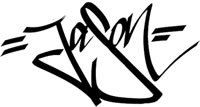If you are new to computers, you may hear terms like kilobytes, megabytes and gigabytes. If that sounds like a foreign language to you then here is a quick run-down.
RELATED POST:
A guide to buying the right computer (so you don’t get ripped off)
1. Units of measure
Computers work with a unit of measure called bytes.
This measure is most commonly used when describing the size of a storage media.
For example, when you visit your local computer store, the spec sheet for each computer will list RAM (computer memory) as 4, 8, 16 or 32 Gb (gigabytes) and the HDD (hard disk drive) or SSD (solid state drive) as 128, 256, 512 or 1,024 Gb.
Computers work in powers of 2.
For example, 2 to the power of 2 (2 squared) is 4 (2 x 2).
And 2 to the power of 3 (2 cubed) is 8 (2 x 2 x 2).
Keep multiplying by 2 and you get 16, 32, 64, 128, 256, 512, 1,024, 2,048, 4,096, 8,192 etc.
Hang around computers for long enough and you' ll start to spot these figures.
As a beginner, this doesn’t mean anything without a context. So let me give you some examples (these figures are approximate).
2. Examples of size and capacity
RELATED POST:
How to avoid cyber attacks, viruses, scams, fraud & phishing
I hope you found plenty of value in this post. I'd love to hear your biggest takeaway in the comments below together with any questions you may have.
Have a fantastic day.


About the author
Jason Morrell
Jason Morrell is a professional trainer, consultant and course creator who lives on the glorious Gold Coast in Queensland, Australia.
He helps people of all levels unleash and leverage the power contained within Microsoft Office by delivering training, troubleshooting services and taking on client projects. He loves to simplify tricky concepts and provide helpful, proven, actionable advice that can be implemented for quick results.
Purely for amusement he sometimes talks about himself in the third person.
SHARE

